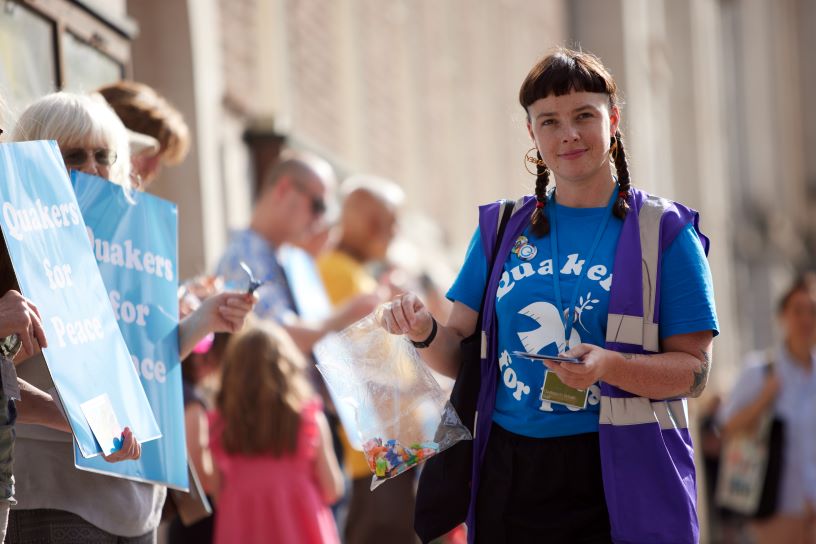Quaker Week 2024: Four centuries on, Quakers say "We're still here"
Quakers are celebrating the continued flourishing of their simple, radical, spiritual faith this Quaker Week, four hundred years after the birth of one of their founders.

Quaker Week in England and Scotland starts on 28 September and finishes on World Quaker Day, 6 October.
Events across the country include concerts, Quaker Meeting around the campfire, shared lunches and films, and heritage displays.
This year, Quakers around the world have been celebrating four centuries since the birth of co-founder George Fox.
[QUOTE-START]
We steadfastly affirm that through God's grace, we are still here.
- World Quakers
[QUOTE-END]
In August, British Quakers joined hundreds of others in South Africa for the first world meeting of Quakers since 2016.
“Emerging from the struggles of the past and present we steadfastly affirm that through God's grace, we are still here. We are one," their final message, or epistle, to be read out at Quaker meetings across the globe, said.
Quakerism was born of the religious and political upheaval of the 1600s when George Fox gathered people interested in a more egalitarian form of faith.
With time they became known as the Quakers, or Friends. Today there are over 400,000 worldwide, more than ever before.
In the 17th century, early Quakers like Fox preached that everyone could experience inner light, or the voice of God, a simple church which didn't need a pre-ordained priest, or outward sacraments.
This shapes modern Quaker beliefs: that all humans are equal and deserving of equal treatment and respect; that faith should be lived and acted out every day.
Drawing on these beliefs, Quakers continue to work for prison reform and against arms manufacturing.
They mediate in conflicts and were one of the first religious organisations in Britain to recognise same-sex marriage.